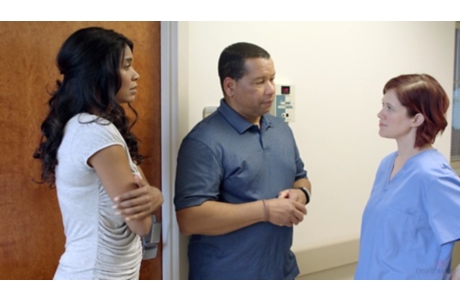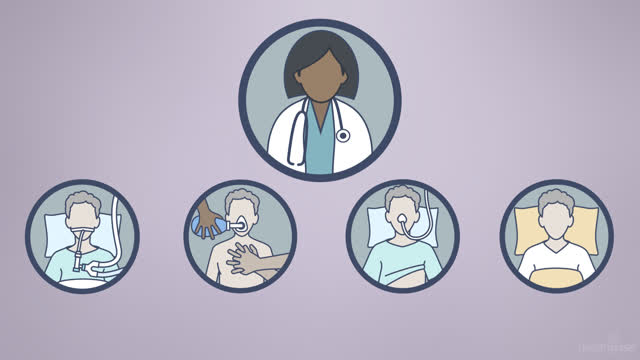The Difference Between Hospice and Palliative Care
Topic Overview
It’s hard to have good days when being sick makes you feel sad, lonely, uncomfortable, or scared. Your quality of life can suffer, not just in your body, but also in your mind and spirit.
Palliative (say “PAL-lee-uh-tiv”) care is the field of medicine that helps give you more good days by providing care for those quality-of-life issues. It includes treating symptoms like pain, nausea, or sleep problems. But it can also include helping you and your loved ones to:
- Understand your illness better.
- Talk more openly about your feelings.
- Decide what treatment you want or don’t want.
- Communicate better with your doctors, nurses, and each other.
Hospice care is a type of palliative care. But it’s for people who are near the end of life. Here’s how the two kinds of care are different.
What kinds of care are involved?
Palliative care:This is treatment to help you feel better physically, emotionally, and spiritually while doctors also treat your illness. It can include care such as pain relief, counseling, or nutrition advice.
Hospice care:Again, the goal is to help you feel better and to get the most out of the time you have left. But you no longer get treatment to try to cure your illness.
When does the care happen?
Palliative care:This care can happen at any time during a serious illness. You don’t have to be near death to get this care.
Hospice care:In most cases, you can choose hospice care when your doctor believes that you have no more than about 6 months to live.
Where does the care happen?
Palliative care:This type of care can be provided wherever you’re being treated for your illness. You can get it in the hospital, at your doctor’s office, in a nursing home, and even in your home.
Hospice care:Most hospice care is done in the place the patient calls “home.” This is often the person’s home. But it could also be a place like a nursing home or retirement center. And hospice care may also be given in hospice centers, hospitals, or other facilities.
Who provides the care?
Palliative care:There are doctors and nurses who specialize in this field. But your own doctor may also provide some of this care. And there are many other types of experts who may help you, like social workers, counselors, therapists, and nutrition experts.
Hospice care:In hospitals, hospice centers, and other facilities, care is provided by doctors, nurses, and others who specialize in hospice care. In the home, a family member is usually the main caregiver. But the family member gets help from care experts who are on call 24 hours a day.
How is the care paid for?
Palliative care:Most health insurance covers palliative care. But the amount of coverage may vary.
Hospice care:Health insurance usually covers hospice care. It’s also covered by Medicare and Medicaid. You are eligible for hospice care regardless of your ability to pay.
References
Other Works Consulted
- National Hospice and Palliative Care Organization (2013). NHPCO’s Facts and Figures: Hospice Care in America. http://www.nhpco.org/sites/default/files/public/Statistics_Research/2013_Facts_Figures.pdf. Accessed March 6, 2014.
- National Institute of Nursing Research (2011). Palliative care: The relief you need when you’re experiencing the symptoms of serious illness. NIH Publication No. 11-6415. http://www.ninr.nih.gov/sites/www.ninr.nih.gov/files/palliative-care-brochure.pdf. Accessed March 6, 2014.
Current as of: April 1, 2019
Author: Healthwise Staff
Medical Review:Kathleen Romito MD – Family Medicine & Adam Husney MD – Family Medicine & Shelly R. Garone MD, FACP – Palliative Medicine
This information does not replace the advice of a doctor. Healthwise, Incorporated, disclaims any warranty or liability for your use of this information. Your use of this information means that you agree to the Terms of Use. Learn how we develop our content.






